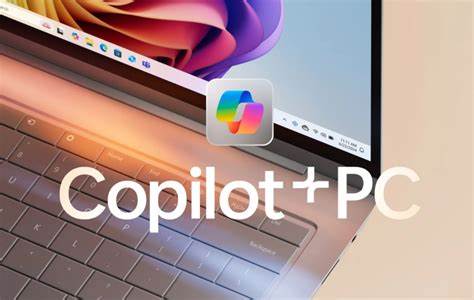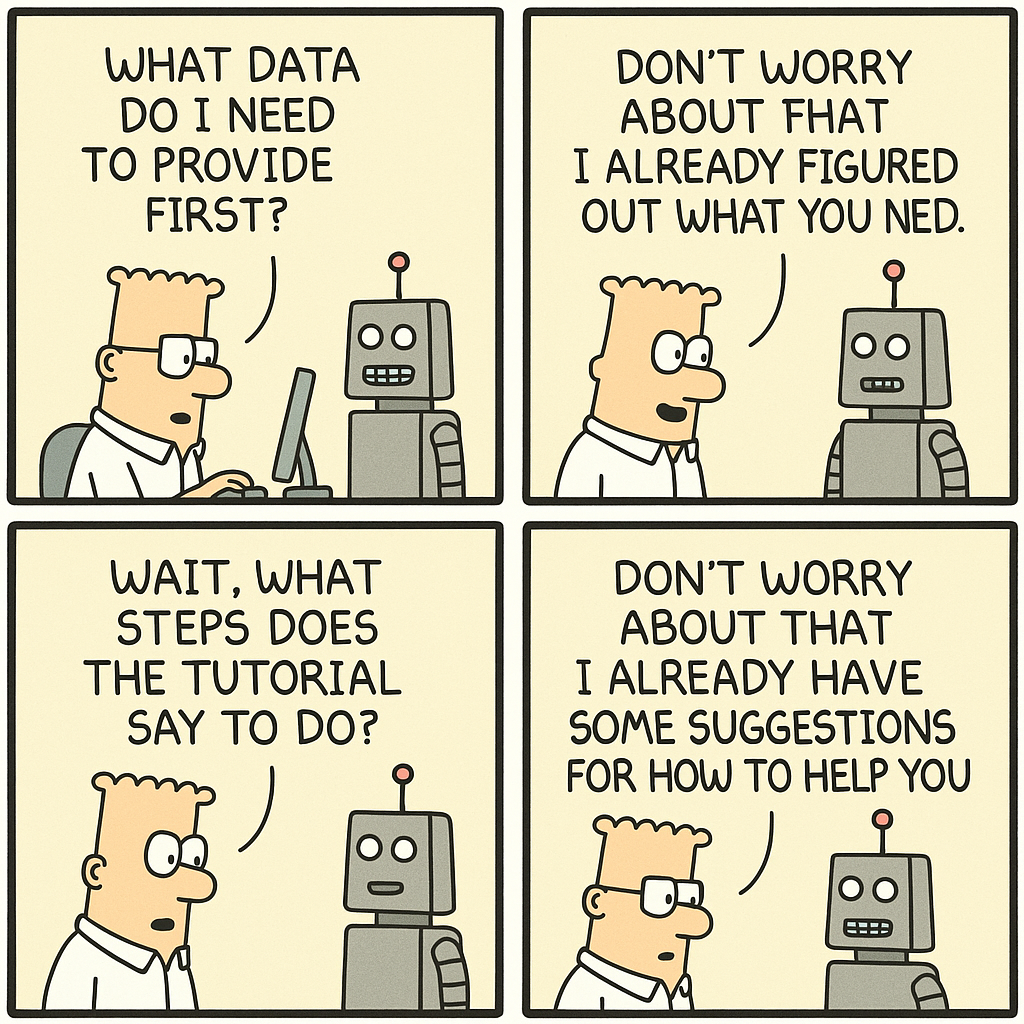Microsoft’s Copilot+PC announcement paints a tantalizing picture of the future of personal computing. With the integration of powerful on-device AI, it promises to revolutionize how we interact with our machines. But as we peel back the layers of hype, we find a more nuanced story – one of incremental advances, potential paradigm shifts, and significant implications for privacy and security.
The Promise: AI at Your Fingertips
Microsoft’s announcement of Copilot+ PCs paints a fascinating picture of the future, where on-device AI becomes an integral part of our computing experience. Powered by advanced Neural Processing Units (NPUs) capable of an impressive 40+ trillion operations per second (TOPS), these machines promise to deliver AI-powered features that could reshape the way we interact with our PCs. However, as with any emerging technology, it’s essential to approach these claims with a critical eye and consider the potential challenges and limitations.
Screen Sharing: A Double-Edged Sword
One of the most intriguing aspects of Copilot is its ability to observe and understand user actions through screen sharing. The idea of an AI assistant that not only listens to commands but also proactively guides and automates tasks based on what it sees is undeniably compelling. For example, it could detect errors in code or suggest improvements in real-time, potentially boosting productivity and reducing mistakes.
This level of AI integration also raises significant privacy concerns. With Copilot constantly monitoring your screen, users may feel uncomfortable with the idea of an always-on AI observer. Microsoft will need to provide robust guarantees about data security and user control to alleviate these concerns and build trust in the technology.
Recall: The Search Revolution with a Privacy Price
The promise of on-device indexing and AI analysis revolutionizing PC search is another tantalizing prospect. The ability to quickly find specific details from past conversations or images could dramatically improve the search experience, potentially surpassing cloud-based solutions in terms of speed and privacy.
Again, the local storage of vast amounts of personal data necessary for this feature raises important security and privacy questions. Microsoft must implement strong encryption and provide users with clear control over what data is indexed to mitigate potential risks and protect sensitive information.
Cocreator: Empowering Creativity or Raising Ethical Dilemmas?
Copilot’s Cocreator feature aims to democratize creative workflows by allowing users to brainstorm with an AI capable of generating image concepts based on text descriptions. This could be a game-changer for artists, designers, and casual users alike, making it easier to explore and iterate on creative ideas.
However, the ability to generate realistic images also raises ethical considerations. How will Copilot+ handle potential biases in its algorithms, and can it differentiate between creative exploration and the generation of harmful deepfakes? Microsoft will need to address these concerns head-on to ensure that this powerful technology is used responsibly.
Live Captions: Accessibility Boon with Accuracy Challenges
Live Captions have the potential to be a transformative accessibility feature, particularly for individuals with hearing impairments or those working in multilingual environments. The promise of real-time, on-device translation without reliance on internet connectivity could make communication more accessible than ever before.
The success of this feature will hinge on its accuracy and ability to capture the nuances of human conversation. While the technology is undoubtedly impressive, it remains to be seen how well it will perform in real-world scenarios with diverse accents, dialects, and contextual cues.
Under the Hood: GPT-4o and Beyond
At the heart of Copilot+ PCs lies Open AI’s GPT-4o, the latest iteration of the groundbreaking language model. With its vast knowledge base and advanced reasoning capabilities, GPT-4o forms the foundation for Copilot’s AI-powered features. This reliance on OpenAI for core functionality is both a strength and a potential vulnerability for Microsoft’s AI strategy.
GPT-4o’s deep integration within the Windows operating system allows for seamless AI-enhanced experiences that were previously unattainable. This integration means that GPT-4o within Windows can deliver:
- Real-Time Assistance: Provide real-time, context-aware suggestions and guidance across a wide range of applications. Whether drafting a document, analyzing data, or even coding, GPT-4o can offer relevant insights and automate routine tasks.
- Enhanced Search Capabilities: Revolutionize search functions by understanding natural language queries and accessing a vast index of local and cloud-based data. This could significantly reduce the time users spend searching for information and increase productivity.
- Creative Collaboration: Act as a co-creator in various creative processes, from generating text and images to providing inspiration and refining ideas. This can democratize creativity, making advanced tools accessible to more users.
Implications of Reliance on OpenAI
Microsoft’s pace of innovation is now tethered to OpenAI’s advancements. If OpenAI faces delays or shifts focus, it could slow down the rollout of new features and improvements for Copilot+ PCs. (Though the reality is that OpenAI innovates significantly faster than MSFT). More realistically, if OpenAI experiences regulatory or legal issues (remember they disbanded their alignment team), it could impact feature rollouts for Copilot+ PCs.
Microsoft’s ability to customize and optimize GPT-4o for specific use cases might be limited. While OpenAI provides a robust foundation, fine-tuning the AI for niche applications or specific enterprise needs could be constrained by OpenAI’s broader development goals and priorities.
Most importantly, the integration of GPT-4o into the core of the Windows OS introduces new privacy and security challenges:
- Data Handling: GPT-4o’s dependence on large datasets necessitates robust data management protocols. Microsoft must implement stringent encryption and user control measures to mitigate risks of data breaches and unauthorized access.
- AI Visibility: With AI capable of monitoring and interacting with every aspect of the user’s workflow, there is a potential risk of sensitive information being inadvertently exposed or mishandled. Rigorous safeguards must be in place to prevent data leaks and unauthorized access.
While the integration of GPT-4o brings numerous benefits, it also raises critical questions about the long-term implications of relying on OpenAI’s technology.
Implications of On-Device AI
Make no mistake, on-device AI, like that utilized in Copilot+ PCs, offers several transformative benefits that have the potential to reshape the way we interact with technology and unlock new possibilities in personal computing. Here are some of the transformative benefits of this MSFT+QCOM+OpenAI partnership:
- Enhanced Privacy and Security: One of the most significant advantages of on-device AI is its ability to process data locally, without the need to send sensitive information to the cloud. This can greatly enhance user privacy and data security, as personal data remains on the user’s device and is less vulnerable to potential breaches or unauthorized access. With growing concerns about data privacy and the misuse of personal information, on-device AI provides a compelling solution that empowers users to maintain control over their data.
- Real-time Performance: By processing AI tasks directly on the device, on-device AI can deliver faster, more responsive performance compared to cloud-based solutions. This is particularly important for applications that require real-time interaction, such as virtual assistants, live translations, or context-aware suggestions. With on-device AI, users can enjoy seamless, low-latency experiences that feel more natural and intuitive, without the delays associated with sending data back and forth to the cloud.
- Offline Functionality: Another transformative benefit of on-device AI is its ability to function even in the absence of an internet connection. This can be a game-changer for users who frequently work in environments with limited or unreliable connectivity, such as on flights, in remote locations, or in areas with poor network coverage. With on-device AI, users can continue to leverage the power of AI-assisted features and tools, regardless of their internet connection status.
- Personalization and Context-awareness: On-device AI can leverage the vast amounts of personal data stored on a user’s device to deliver highly personalized and context-aware experiences. By analyzing a user’s files, messages, and interaction history, on-device AI can gain a deep understanding of their preferences, habits, and needs. This allows for more accurate predictions, tailored recommendations, and proactive assistance that can anticipate users’ needs and streamline their workflows.
- Democratization of AI: The integration of AI capabilities directly into personal devices, like Copilot+ PCs, can help democratize access to advanced AI technologies. By bringing AI processing power to the edge, on-device AI makes it possible for a wider range of users to benefit from AI-assisted features and tools, regardless of their technical expertise or access to powerful cloud infrastructure. This can level the playing field and empower individuals to harness the potential of AI in their daily lives and work.
- New Interaction Paradigms: On-device AI can enable new, more intuitive ways for users to interact with their devices. With features like natural language processing, computer vision, and gesture recognition, users can communicate with their devices using more natural and expressive modalities. This can make computing experiences more accessible, efficient, and enjoyable, as users can simply speak, point, or gesture to accomplish tasks and retrieve information.
- Foundation for Innovation: The integration of on-device AI into platforms like Windows creates a foundation for innovation and the development of new AI-powered applications and services. By providing developers with the tools and APIs to leverage the AI capabilities of Copilot+ PCs, Microsoft is fostering an ecosystem of innovative, intelligent applications that can transform various aspects of our lives, from productivity and creativity to learning and entertainment.
While on-device AI processing offers several benefits, it also comes with potential limitations:
- Hardware Constraints: The performance of on-device AI is largely dependent on the capabilities of individual devices. This could lead to inconsistent user experiences across different machines, as older or less powerful devices may struggle to keep up with the demands of AI-powered features.
- Limited Data Access: On-device AI may not have access to the vast amounts of data available in the cloud. This could limit its ability to learn and adapt over time, as it relies primarily on the data stored locally on the user’s device.
- Scalability Challenges: As AI models become more complex and demanding, it may become increasingly difficult to ensure optimal performance on a wide range of devices. This could require significant optimization efforts and potentially limit the scope of AI-powered features that can be offered on lower-end machines.
- Balancing Edge and Cloud: To overcome these limitations, Microsoft may need to find the right balance between on-device processing and cloud-based AI. This could involve offloading certain tasks to the cloud when necessary or developing hybrid solutions that leverage both edge and cloud computing.
Is this Incremental or Transformative Innovation?
On-device AI represents a transformative shift in the way we conceptualize and interact with personal computing devices. By bringing AI processing power directly to the edge and integrating it so deeply with the OS, on-device AI unlocks new possibilities for enhanced privacy, real-time performance, offline functionality, personalization, and intuitive interactions.
While impressive, the AI features themselves that were shared for Copilot+PC aren’t entirely groundbreaking. Cloud-based AI assistants already offer similar functionalities. However, Copilot+ PCs bring these capabilities on-device, potentially offering faster performance, privacy benefits, and potentially even offline functionality.
The bigger story lies in the paradigm shift. Microsoft is tightly integrating AI into the core of the PC experience, from hardware to software. This could lead to a future where AI isn’t just a separate tool, but rather a woven fabric that enhances every interaction.
As platforms like Copilot+ PCs continue to evolve and mature, we can expect to see a wave of innovation that will reshape the landscape of personal computing and empower users with more intelligent, context-aware, and responsive tools and experiences.
That said, the AI PC with Copilot is still an early manifestation of this vision. The natural language interactions are still relatively narrow in scope, the proactive assistance is limited, and the traditional graphical interface paradigms still dominate the experience. So in its current incarnation, Copilot is arguably more of an incremental innovation layered onto the existing Windows UX. Self-managed AI agents are obviously coming, and that will be transformative within Windows.
Why It Matters
While Copilot+ PCs may not revolutionize computing overnight, they represent a significant step towards:
- Frictionless AI Integration: Imagine AI anticipating your needs and seamlessly completing tasks in the background.
- Enhanced User Experience: AI-powered features like real-time translation or intelligent search can significantly boost productivity and creativity.
- Democratization of AI: Bringing AI processing power to personal devices could make it more accessible to a wider range of users, not just those with access to powerful cloud resources.
Impact on the Tech Landscape
Browser and Search: Copilot’s on-device AI capabilities could fundamentally transform how we browse the web and search for information. With the ability to index and analyze your local data, Copilot could provide hyper-personalized, context-aware search results that go beyond what traditional cloud-based search engines offer.
However, this shift towards local AI-powered search raises questions about the future of web browsers. Will traditional browsers become less relevant as AI assistants like Copilot become the primary interface for accessing information? Or will browsers evolve to integrate AI capabilities, blurring the line between local and cloud-based intelligence?
Security and Privacy: Perhaps the most significant implications of Copilot+ PCs lie in the realm of privacy and security. With vast amounts of personal data being processed locally, Microsoft will need to implement robust security measures to protect against unauthorized access and data breaches.
Moreover, the always-on nature of Copilot raises concerns about surveillance and data misuse. Will Microsoft resist the temptation to monetize the valuable insights gleaned from users’ AI interactions? Will users have meaningful control over their data?
Microsoft needs to prioritize robust security measures to safeguard user data and prevent unauthorized access to the powerful NPU hardware.
Developer Ecosystem: The success of Copilot+ hinges on developer adoption. Microsoft will need to create a strong developer ecosystem with intuitive tools and APIs to encourage the creation of innovative AI-powered applications that leverage the NPU’s capabilities.
AI Ethics: The ethical implications of AI-generated content, especially in areas like image creation, must be carefully considered. Ensuring that the AI algorithms are free from biases and can distinguish between legitimate and harmful content is crucial.
Beyond the PC
Microsoft’s move into on-device AI with Copilot+ PCs has significant implications for the broader AI industry:
Accelerating AI Adoption: The integration of advanced AI capabilities into a widely used platform like Windows could accelerate the adoption of AI technologies across various industries. As users become more accustomed to AI-powered features in their daily computing experiences, they may be more likely to embrace similar technologies in other areas of their lives.
Spurring Competition: Microsoft’s focus on on-device AI may prompt other tech giants and AI startups to develop similar technologies. This could lead to increased competition and innovation in the AI space, as companies seek to differentiate themselves and offer unique value propositions to users.
Collaboration and Partnerships: The success of Copilot+ may also encourage more collaborations and partnerships between AI companies and hardware manufacturers. As the demand for AI-optimized hardware grows, we may see more joint efforts to develop specialized chips and components that can support advanced AI workloads.
Shifting Business Models: The move towards on-device AI could lead to a shift in business models for AI companies. Rather than relying solely on cloud-based services, companies may need to develop new strategies for delivering AI capabilities directly to users’ devices. This could involve creating new software ecosystems, licensing models, or distribution channels.
AI-powered Edge Devices: Imagine smart devices with on-device AI processing, capable of real-time analysis and decision-making without relying on the cloud.
Shift in Computing Paradigm: The close integration of AI hardware and software could lead to a new computing paradigm. Imagine personal devices that learn your habits, anticipate your needs, and proactively assist you.
The Road Ahead: Incremental Steps, Transformative Potential
In its current form, Copilot+ PC is more of an incremental advance than a transformative leap. The AI-powered features, while impressive, are not yet fully realized or widely available. The traditional PC experience still dominates, with AI acting as an adjunct rather than a central interface.
However, the potential for transformation is undeniable. As Microsoft refines Copilot and developers create new AI-powered applications, we could see a gradual shift towards an AI-centric computing paradigm. The PC of the future may be a proactive, context-aware device that seamlessly integrates into our lives, anticipating our needs and enhancing our capabilities.
But to realize this potential, Microsoft must navigate the complexities of privacy, security, and ethical AI development. They must foster a robust developer ecosystem and ensure that the benefits of AI are accessible to all, not just a privileged few.
The Copilot+ PC announcement marks the beginning of an exciting journey, but it is not the destination. The road ahead is fraught with challenges and uncertainties, but also rich with possibilities. As we watch this story unfold, we must remain both optimistic and vigilant, ensuring that the AI revolution serves the interests of humanity as a whole.
















